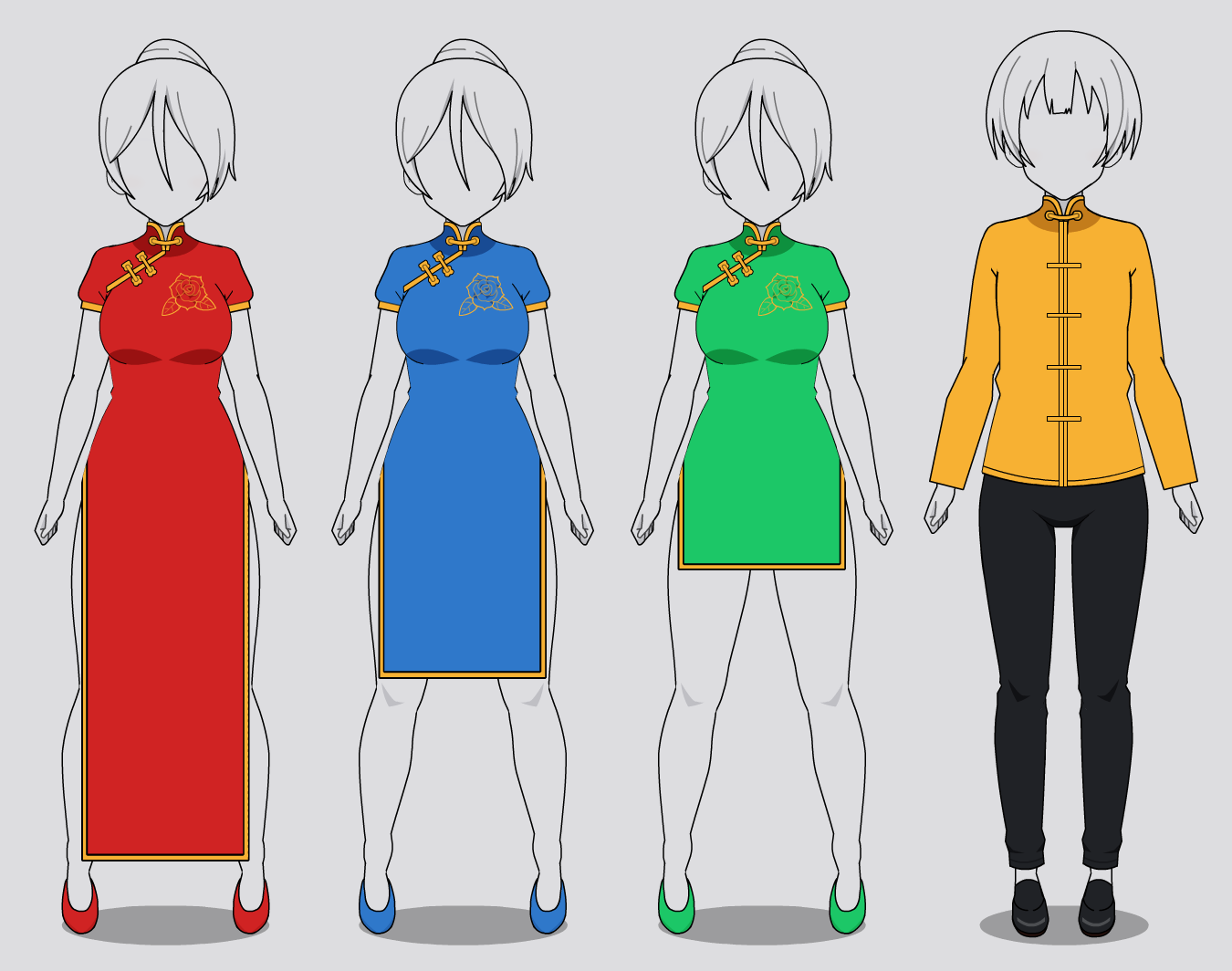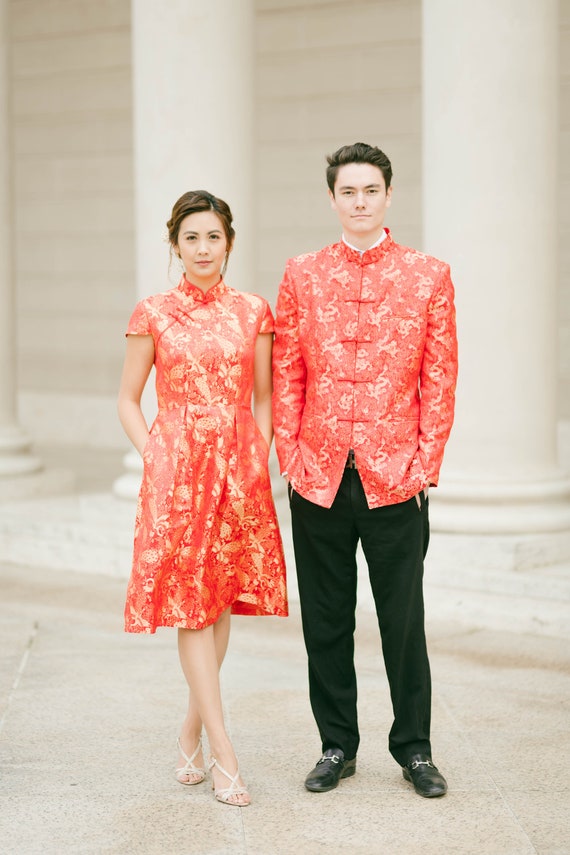Revolutionizing Traditional Elegance
The cheongsam and changshan, traditional Chinese garments, have been a symbol of elegance and cultural heritage for centuries. As we step into the contemporary era, these timeless pieces have been reimagined, offering a modern twist that respects their roots while embracing innovation. This article explores how designers and wearers alike are breathing new life into these classic styles, ensuring their place in the global fashion landscape.

The Evolution of the Cheongsam and Changshan
The cheongsam, also known as the qipao, has evolved from its early 20th-century form. Originally a loose-fitting garment for Manchu women, it has been tailored to accentuate the female figure. Similarly, the changshan, a traditional long gown for men, has seen various adaptations, including the incorporation of Western-style lapels and collars. The evolution of these garments reflects the dynamic nature of fashion and the desire to maintain cultural identity in a modern context.
Cultural Heritage and Modern Design
The essence of the cheongsam and changshan lies in their ability to blend cultural heritage with modern design. Designers are infusing these traditional garments with contemporary elements, such as new fabrics, patterns, and cuts, without compromising their inherent charm. This fusion not only revitalizes the garments but also makes them more accessible to a global audience.

Global Appeal and Cultural Exchange
The global appeal of the cheongsam and changshan is a testament to the universality of beauty and the desire for cultural exchange. These garments have transcended their geographical origins, becoming a canvas for international designers to express their creativity. The fusion of Eastern and Western design elements has resulted in unique pieces that celebrate diversity and foster understanding between cultures.
Fashion Forward: The Future of Cheongsam and Changshan
As we look to the future, the cheongsam and changshan are poised to continue their evolution. With the rise of sustainable fashion and a focus on ethical production, these garments are set to incorporate eco-friendly materials and practices. Furthermore, the increasing demand for personalized and customizable fashion experiences will likely lead to a surge in made-to-measure cheongsam and changshan, catering to individual tastes and preferences.

Conclusion: A Timeless Legacy
The cheongsam and changshan are more than just garments; they are a living legacy that continues to adapt and thrive in the ever-changing world of fashion. As we embrace the modern interpretations of these traditional styles, we also pay homage to the rich history and cultural significance they represent. The future of the cheongsam and changshan is bright, as they stand as a bridge between the past and the present, connecting us to our heritage while inspiring new trends.








As a student of fashion design, I’m inspired by the way the cheongsam and changshan are being reimagined. The use of new fabrics and patterns is a great way to breathe new life into these classic styles. It’s a lesson in how to modernize without losing the essence of the original design.
As a mother of two, I love the idea of passing down a modern cheongsam to my daughters. It’s a way to share our cultural heritage while also teaching them about the importance of sustainability and ethical fashion. The emotional value of these garments is priceless.
As a fashion blogger from London, I’m thrilled to see the global appeal of the cheongsam and changshan. The fusion of Eastern and Western design elements creates unique pieces that celebrate diversity. It’s a beautiful example of how fashion can bridge cultures.